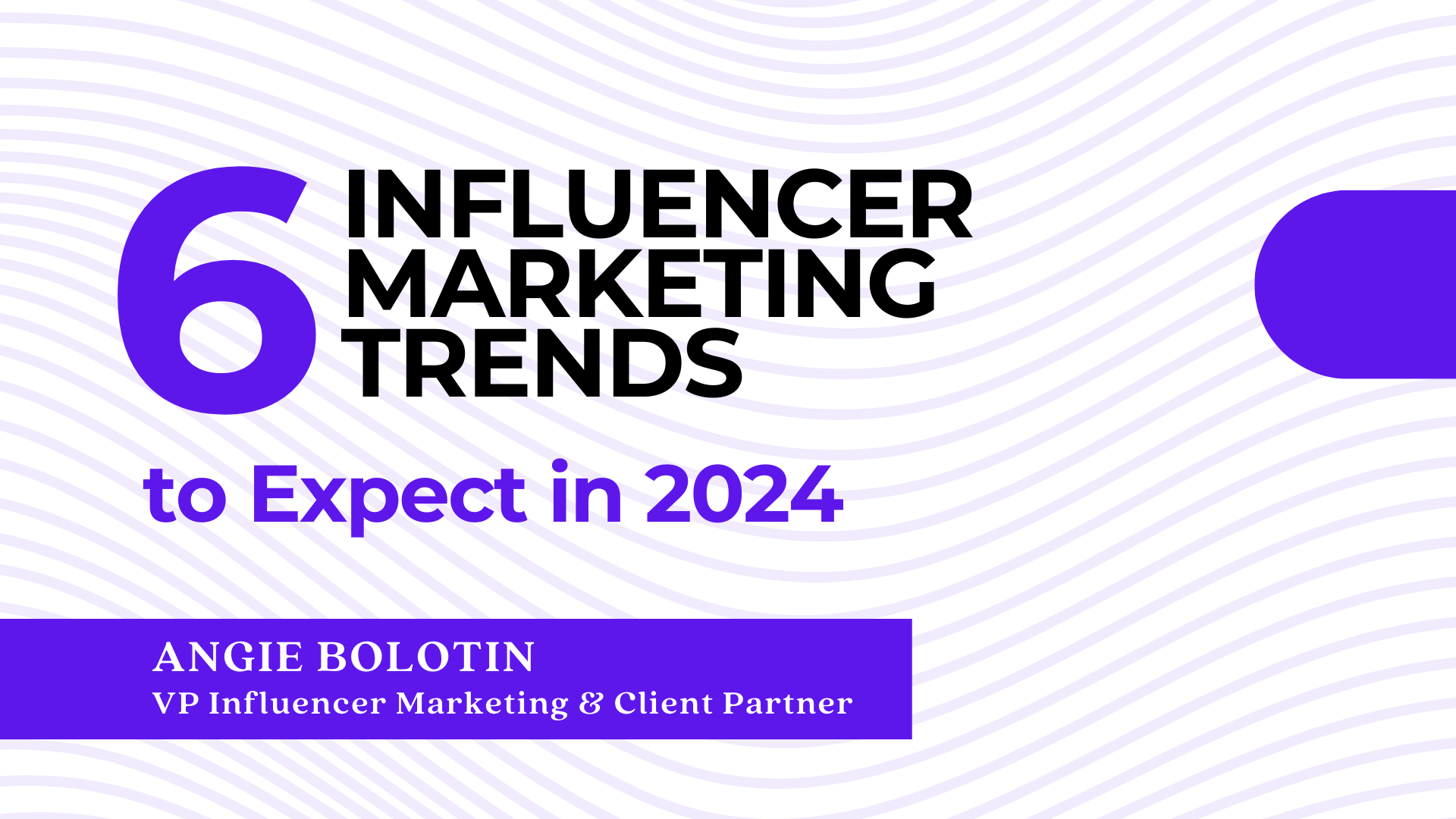
Platform updates, live shopping, and prioritization of performance marketing have impacted brand decision making and led brands to reevaluate their influencer marketing approach. To meet the needs of the ever evolving digital space, we’re sharing the latest trends in influencer marketing that are guaranteed to help your strategies stay current.
The paradigm shift from awareness to conversion tracking in influencer programs is imperative and expected to become more prominent in 2024. Beyond brand visibility, tracking conversions enables precise measurement of an influencer’s impact on clicks, leads, and sales. Brands are no longer looking to only reach individuals through influencers, but to guide them down the right path using strategically developed assets tailored to conversions. This shift optimizes strategies, aligns campaigns with business objectives, and ensures a tangible return on investment in the realm of influencer marketing, which is trending as a bigger priority for brands this year.
Prioritizing long-term influencer relationships is strategic for sustained brand impact, as cultivating trust and reliability through consistent collaboration fosters authentic connections. This approach not only enhances brand credibility but also leverages influencers as genuine brand advocates, ensuring enduring partnerships that yield lasting benefits.
Extending influencer relationships requires assessing performance metrics, such as engagement rates, conversions, and audience feedback. Brands with a focus on conversions can also utilize UTMS for concrete data on clicks, leads, and sales to optimize strategies, align campaigns with business goals, and foster effective, long-term partnerships. Consistent positive impact, alignment with brand values, and demonstrated reliability should guide the decision. Prioritizing influencers who consistently deliver value ensures the longevity and effectiveness of the partnership.
Influencers enhance brand reputation and encourage positive brand sentiment by authentically endorsing products or services. While awareness and conversion campaigns still dominate the influencer space, use of influencers for their credibility and positive sentiment is on the rise. Their relatability fosters trust and reaches potential consumers with genuine recommendations. This authentic engagement generates positive conversations, reviews, and endorsements, ultimately elevating brand perception and fostering a favorable sentiment among the target audience.
In addition to a boosted perception, influencers can positively impact recruitment by showcasing a company’s culture, values, and opportunities. For this reason, brands use the authentic endorsements from influencers to reach a diverse audience, creating an attractive employer brand. This strategy fosters engagement, attracts top talent, and enhances the overall recruitment efforts by presenting a compelling narrative of the workplace.
Influencers and live shopping have forged a symbiotic relationship, revolutionizing the way products are promoted and purchased. Social platforms themselves have prioritized their live shopping capabilities and have opened opportunities for influencers to utilize live shopping events to engage their audience. More brands are expected to tap into this interactive approach to capitalize on the influencers’ authenticity and immediacy, creating a sense of urgency that drives sales. Viewers can ask questions, seek advice, and make informed purchase decisions on the spot. Live shopping merges the persuasive power of influencers with the instant gratification of online shopping, creating a dynamic and effective platform that redefines the traditional retail experience in the digital age.
AI is reshaping influencer marketing by enhancing targeting precision and campaign optimization. AI algorithms analyze vast datasets to identify influencers whose audience aligns with a brand, ensuring a more strategic partnership. Predictive analytics aid in forecasting engagement and campaign performance, guiding marketers to make data-driven decisions. Overall, AI is streamlining influencer discovery, improving campaign effectiveness, and providing insights that elevate the ROI and impact of influencer marketing efforts.
Affiliate marketing and influencers synergize in a powerful partnership, driving mutual benefits to a brand’s bottom line. In 2024, we expect influencers to act as affiliates in a larger capacity by promoting products or services to their engaged audience to earn commissions on sales generated from their promotions, tracked through unique affiliate links. This model leverages the trust influencers have with their followers, resulting in more authentic and persuasive marketing. With the new addition of TikTok Shop and TikTok’s own affiliate capabilities in the platform, we expect to see major growth in the space as brands prioritize in-app shopping.
Whether brands are looking to drive sales or increase authentic engagements across a key target base, these influencer marketing trends will lead to a refreshed approach in 2024. If you’re not sure where to start or would like to discuss next steps for your brand, reach out to our team of experts today. We’re here to help!
Written By: Angie Bolotin, VP, Influencer Marketing & Client Partner